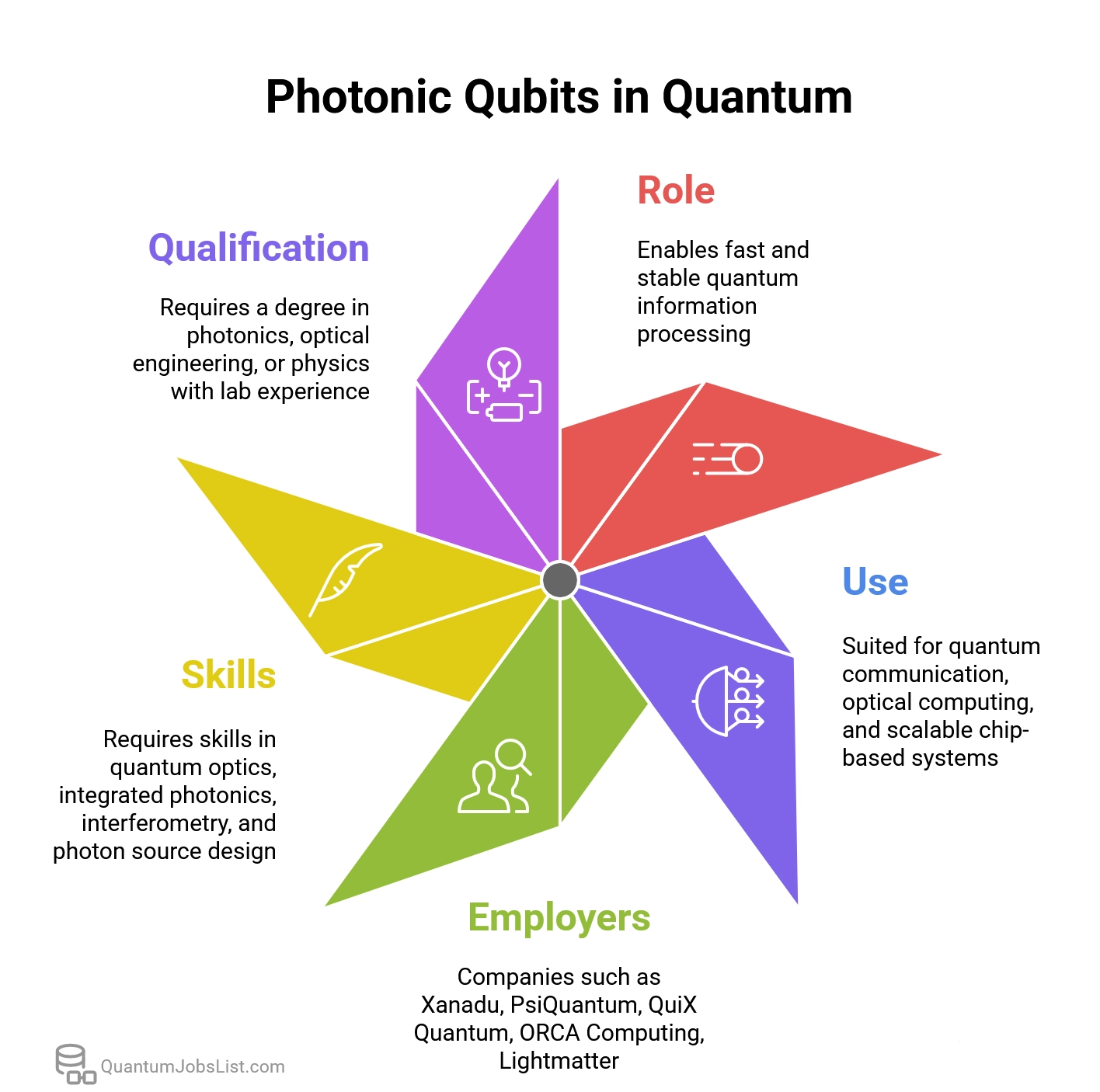Photonic Qubits Jobs













































Search jobs
Know the Basics
Quantum bits made from particles of light (photons). These can work at room temperature, making them easier to handle than ultra-cold systems, like sending quantum information through fiber optic cables.
What does a photonic quantum engineer do every day?
They design experiments, simulate photonic circuits, and optimize how light particles are used as qubits, requiring strong analytical skills and expertise with electromagnetic simulation software. You will calibrate lasers, design optical waveguides on chips, evaluate single-photon detectors, and develop Python scripts for experiment automation and quantum photonic system data analysis.
How much can I earn working with photonic qubits?
Entry-level photonic engineers typically earn 85,000 - 115,000 USD a year. Experienced specialists make 125,000 - 170,000 USD a year, while senior researchers at companies like PsiQuantum, Xanadu, or national labs can command 180,000-230,000+ USD a year, especially if you have expertise in integrated photonics or single-photon source development.
Quantum computing is real, and we believe that, within five years … we will be the first quantum computing company to offer a scalable, distributed, and fault-tolerant solution. Stephanie Simmons, Founder & Chief Quantum Officer at Photonic IncQ
What technical skills do photonic qubit jobs require?
- Photonics knowledge: Understanding light behaviour in quantum systems.
- Optical engineering: Designing waveguides, beam splitters, and detectors.
- Python programming: For circuit simulation and data analysis.
- Cleanroom fabrication: Creating photonic chips using nanofabrication techniques.
Experience with commercial electromagnetic simulation packages & photonic optimization techniques is required, along with extensive Python for scientific computation.

Which companies are hiring for photonic quantum computing?
PsiQuantum is the largest quantum photonics company in the world and is building a million-qubit computer. Xanadu, in Canada, Quandela, in France, and ORCA Computing, in the UK, are also major companies in the field. Unlike other quantum computing systems, PsiQuantum's systems function at room temperature and do not require ultra-cold environments. Academic labs at Stanford, MIT, and Oxford also hire photonic systems researchers.
Photonic has searched extensively for the right talent to help us achieve our ambitious goals … we will further accelerate progress on our path to make distributed quantum computing a commercial reality. Dr. Paul Terry, CEO at Photonic Inc
Why are photonic qubits attractive for quantum computing?
Photonic qubits can function at room temperature, which is a stark difference from other platforms that operate in ultra-cold environments. Since photons do not interact with each other, they do not generate noise. And they are perfect for quantum communication, as they are fast travellers through fiber optics. The main obstacles are constructing advanced circuits for manipulating thousands of photons at once and accurately detecting single photons.
Can optical engineers transition into photonic quantum roles?
Yes! Your background in optics, lasers, and photonics gives you a huge advantage. Employers do say that they do not expect prior quantum experience from new hires. They request strong engineers that can learn on the job which problem solving and hands on skills as the main focus. You can search jobs at Quantum Jobs. Learning the basics of quantum computing from an online course and the theory of single photon source and detector will help you greatly in your career switch.

.svg)

